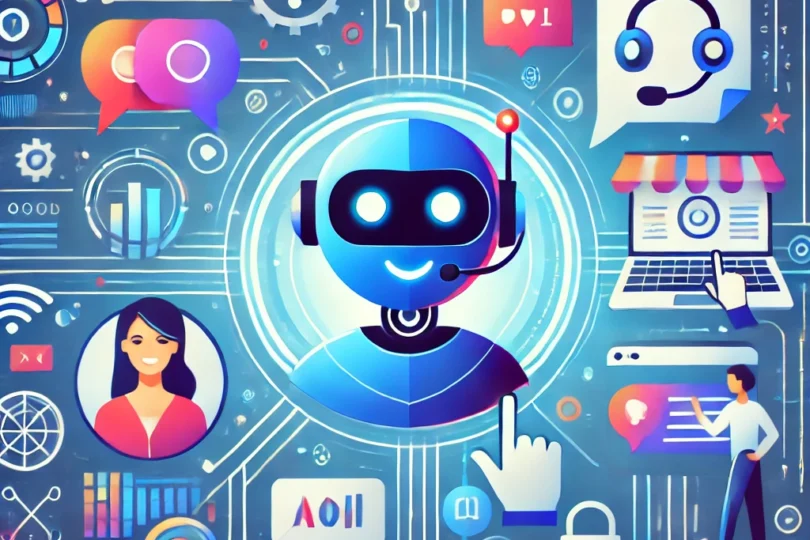Summary and Opinion
The landscape of customer support is being transformed by the integration of chatbots, driven by advancements in artificial intelligence (AI) and machine learning. Here are three key trends shaping the future of chatbots in customer support and interaction in 2024.
1. Increased Adoption and Efficiency: Chatbots are becoming a staple in customer service, with nearly 90% of customer queries resolved in 10 messages or fewer. The efficiency of chatbots in handling repetitive and simple queries allows businesses to reduce customer support costs significantly, by up to 30%. This trend is particularly beneficial for smaller businesses that need to manage resources efficiently while maintaining high levels of customer satisfaction. The rapid response times and 24/7 availability of chatbots are essential in today’s fast-paced digital environment, as they meet the growing demand for immediate assistance (Tidio, REVE Chat).
2. Enhanced User Experience through AI: The advancements in AI, particularly in sentiment analysis and conversational capabilities, are making chatbots more effective and human-like. Chatbots equipped with sentiment analysis can understand and respond to customer emotions, improving the overall user experience. This capability allows chatbots to provide tailored responses based on the customer’s mood, whether they are frustrated, happy, or confused. Additionally, AI-powered chatbots are increasingly being used for predictive analytics, helping businesses anticipate customer needs and provide proactive support. This shift towards more intelligent and emotionally aware chatbots is crucial for building stronger customer relationships and loyalty (REVE Chat, Chatbot.com).
3. Voice and Omnichannel Integration: Voice-enabled chatbots are gaining popularity as they offer a more natural and engaging way for customers to interact with businesses. With the rise of smart speakers and voice assistants, integrating voice capabilities into chatbots is becoming a key trend. This allows for hands-free, real-time customer support, enhancing accessibility and convenience. Moreover, the integration of chatbots across multiple channels—such as social media, websites, and messaging apps—ensures a seamless and consistent customer experience. This omnichannel approach helps businesses meet customers wherever they are, providing support across various touchpoints (Chatbot.com).
In conclusion, the future of customer support is being shaped by the widespread adoption of chatbots, enhanced by AI-driven capabilities and integrated across multiple channels. These trends highlight the importance of leveraging chatbot technology to improve customer satisfaction, reduce costs, and stay competitive in the evolving digital landscape. As businesses continue to embrace these innovations, they will be better equipped to meet the changing expectations of their customers.
Hashtags
#CustomerSupport #AIChatbots #VoiceChatbots #OmnichannelSupport
Backlinks to Original Articles
https://www.tidio.com | : | https://www.revechat.com | : | https://www.chatbot.com





This insightful comment highlights the transformative impact of chatbots on customer support, driven by significant advancements in AI and machine learning. The rapid adoption of chatbots is improving the efficiency of customer interactions, with the potential to resolve the majority of queries swiftly and reduce operational costs. The incorporation of AI, particularly through sentiment analysis and conversational AI, allows chatbots to deliver a more personalized and empathetic customer experience, recognizing and responding to user emotions effectively.
Moreover, the integration of voice technology and a multi-channel approach enhances accessibility and consistency across various customer touchpoints, from social media to voice assistants. This evolution points to a future where chatbots are central to customer support strategies, offering 24/7 availability and real-time assistance that aligns with the contemporary consumer’s expectations for immediacy and convenience.
The progression towards more intelligent and interconnected chatbot systems signifies a crucial shift in how businesses engage with their customers, promising not only enhanced customer satisfaction but also operational efficiency and resource management. As these technologies continue to evolve, they will undoubtedly play a pivotal role in shaping the future of customer support.